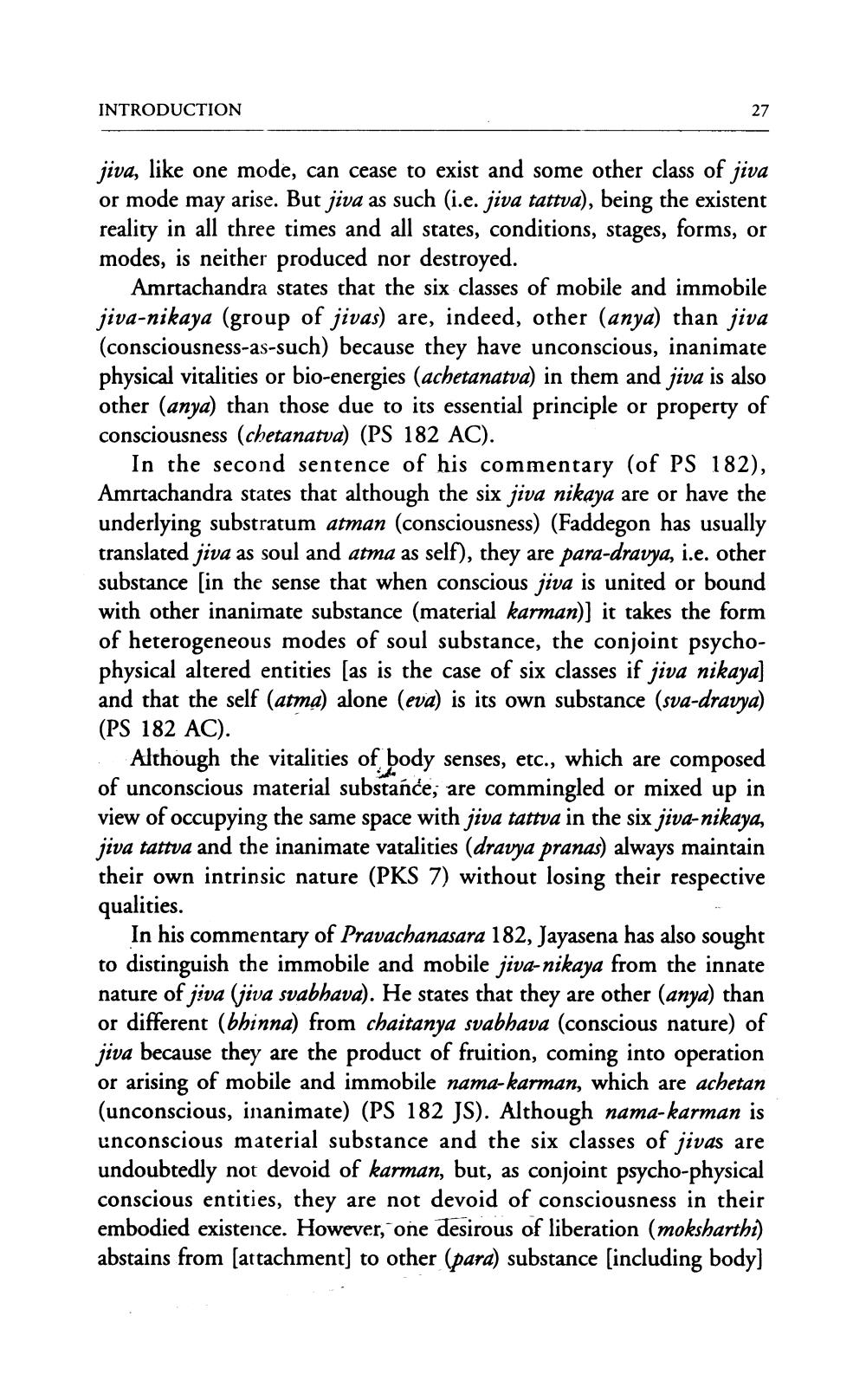________________
INTRODUCTION
jiva, like one mode, can cease to exist and some other class of jiva or mode may arise. But jiva as such (i.e. jiva tattva), being the existent reality in all three times and all states, conditions, stages, forms, or modes, is neither produced nor destroyed.
Amrtachandra states that the six classes of mobile and immobile jiva-nikaya (group of jivas) are, indeed, other (anya) than jiva (consciousness-as-such) because they have unconscious, inanimate physical vitalities or bio-energies (achetanatva) in them and jiva is also other (anya) than those due to its essential principle or property of consciousness (chetanatva) (PS 182 AC).
In the second sentence of his commentary (of PS 182), Amrtachandra states that although the six jiva nikaya are or have the underlying substratum atman (consciousness) (Faddegon has usually translated jiva as soul and atma as self), they are para-dravya, i.e. other substance in the sense that when conscious jiva is united or bound with other inanimate substance (material karman)] it takes the form of heterogeneous modes of soul substance, the conjoint psychophysical altered entities (as is the case of six classes if jiva nikaya] and that the self (atma) alone (eva) is its own substance (sva-dravya) (PS 182 AC) · Although the vitalities of body senses, etc., which are composed of unconscious material substance; are commingled or mixed up in view of occupying the same space with jiva tattva in the six jiva-nikaya, jiva tattva and the inanimate vatalities (dravya pranas) always maintain their own intrinsic nature (PKS 7) without losing their respective qualities.
In his commentary of Pravachanasara 182, Jayasena has also sought to distinguish the immobile and mobile jiva-nikaya from the innate nature of jiva (jiva svabhava). He states that they are other (anya) than or different (bhinna) from chaitanya svabhava (conscious nature) of jiva because they are the product of fruition, coming into operation or arising of mobile and immobile nama-karman, which are achetan (unconscious, inanimate) (PS 182 JS). Although nama-karman is unconscious material substance and the six classes of jivas are undoubtedly not devoid of karman, but, as conjoint psycho-physical conscious entities, they are not devoid of consciousness in their embodied existence. However, one desirous of liberation (moksharthi) abstains from [attachment] to other (para) substance (including body]




